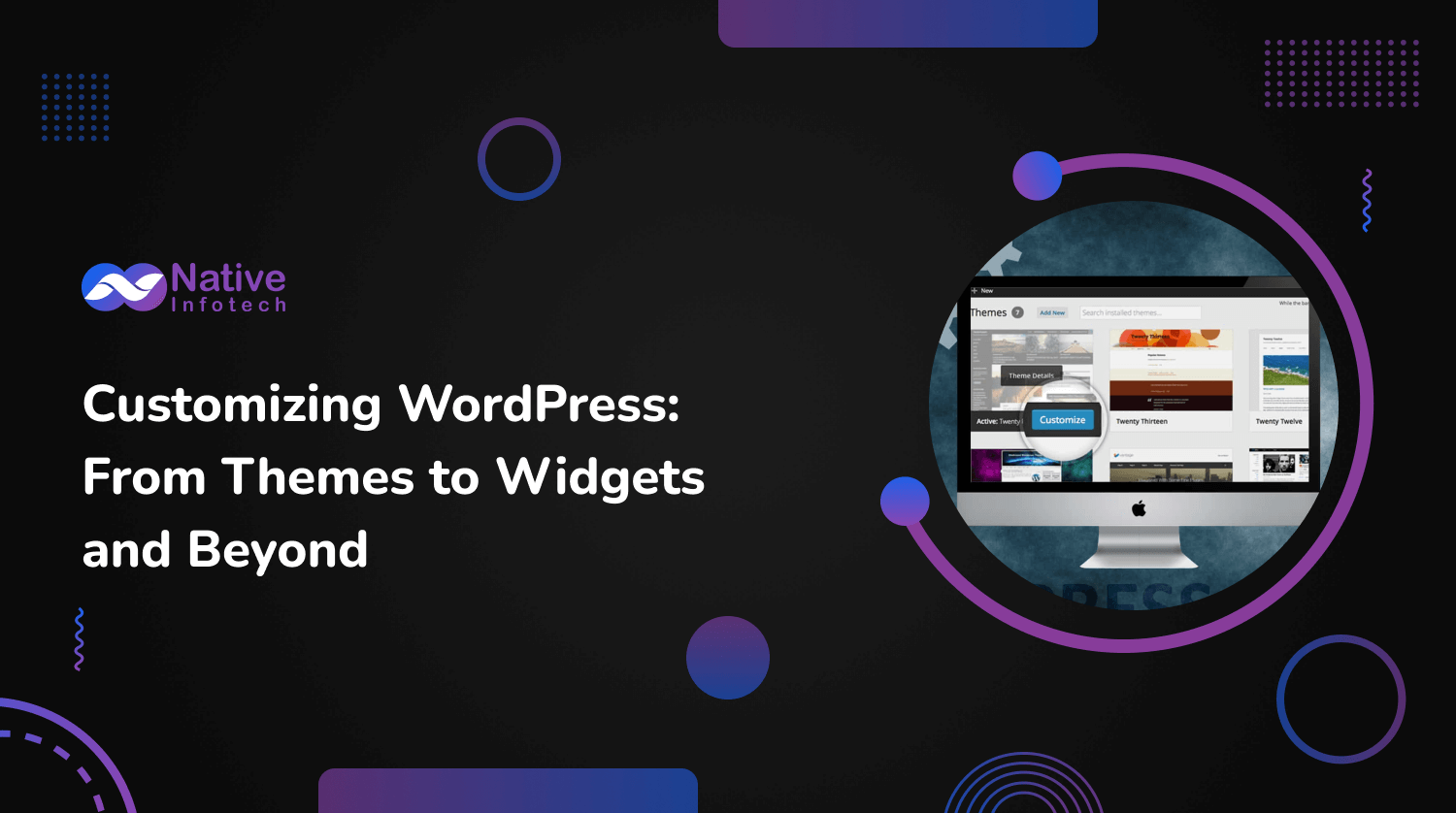
In today’s fast-changing digital world, Industry 4.0 has become a key factor for business success. This new phase combines digital, physical, and biological technologies, changing how industries work and how companies do business. This article will explain what Industry 4.0 is, its main parts, and why businesses need to adopt this change to succeed in the digital age.
Understanding Industry 4.0
Industry 4.0 is the fourth industrial revolution. It involves combining physical systems with digital technology, the Internet of Things (IoT), and online services. This revolution comes after three previous ones: the first brought machines powered by water and steam, the second introduced mass production with assembly lines, and the third brought digital technology and automation.
Key Components of Industry 4.0
Internet of Things (IoT): IoT involves connecting devices and systems to the internet, allowing them to collect and exchange data. This connectivity enables real-time monitoring, control, and optimization of processes, leading to increased efficiency and productivity.
Big Data and Analytics: The massive amounts of data generated by IoT devices and other digital sources can be analyzed to gain valuable insights. These insights help businesses make informed decisions, predict trends, and identify opportunities for improvement.
Artificial Intelligence (AI) and Machine Learning: AI and machine learning algorithms can process and analyze large datasets, enabling automation, predictive maintenance, and intelligent decision-making. These technologies help businesses streamline operations and improve customer experiences.
Burnout is a state of chronic physical and emotional exhaustion. It’s essential to recognize the signs early to prevent long-term damage. Symptoms include persistent fatigue, decreased productivity, and a sense of detachment from one’s work. If you’re feeling overwhelmed by the demands of your digital work life, it’s time to consider making changes.
Cyber-Physical Systems (CPS): CPS are integrations of computation, networking, and physical processes. They allow for the seamless interaction between the digital and physical worlds, enabling smart manufacturing, autonomous vehicles, and advanced robotics.
Cloud Computing: Cloud computing provides scalable and flexible computing resources over the internet. It enables businesses to store, process, and analyze data efficiently, supporting the implementation of Industry 4.0 technologies.
Advanced Robotics: Robotics in Industry 4.0 involves the use of intelligent robots capable of performing complex tasks autonomously or collaboratively with humans. These robots improve production efficiency and reduce human error.
Additive Manufacturing (3D Printing): Additive manufacturing allows for the creation of complex, customized products through layer-by-layer material deposition. This technology reduces waste, shortens production times, and enables on-demand manufacturing.
Augmented Reality (AR) and Virtual Reality (VR): AR and VR technologies improve the interaction between humans and machines. They are used for training, maintenance, and design, providing immersive experiences that improve efficiency and safety.
Cybersecurity: With the increased connectivity of devices and systems, cybersecurity becomes paramount. Protecting sensitive data and ensuring the integrity of digital infrastructure are critical for the success of Industry 4.0 initiatives.
Digital Twin: A digital twin is a virtual replica of a physical asset, system, or process. It enables real-time monitoring, simulation, and optimization, allowing businesses to test and improve operations in a virtual environment.
The Impact of Industry 4.0 on Businesses
Industry 4.0 is transforming businesses across various sectors by Improving efficiency, productivity, and innovation. Here are some ways in which it is driving business success:
Improved Operational Efficiency
The integration of IoT, AI, and CPS enables businesses to monitor and optimize their operations in real-time. This real-time data allows for predictive maintenance, reducing downtime and increasing asset utilization. For example, manufacturers can use IoT sensors to monitor machinery and detect potential issues before they cause failures.
Improved Customer Experiences
Industry 4.0 technologies enable businesses to offer personalized and seamless customer experiences. By leveraging big data and AI, companies can analyze customer behavior and preferences, providing tailored products and services. For instance, e-commerce platforms can use machine learning algorithms to recommend products based on a customer’s browsing history and purchase patterns.
Innovation and Product Development
Additive manufacturing and digital twin technologies facilitate rapid prototyping and product development. Companies can quickly design, test, and iterate new products, reducing time-to-market and fostering innovation. This agility allows businesses to respond swiftly to market demands and stay ahead of competitors.
Supply Chain Optimization
The connectivity and transparency provided by Industry 4.0 technologies enable businesses to optimize their supply chains. Real-time data from IoT devices and advanced analytics can improve demand forecasting, inventory management, and logistics. For example, retailers can use IoT sensors to track inventory levels and automatically reorder products when stock is low.
Workforce Transformation
Industry 4.0 is reshaping the workforce by automating repetitive tasks and augmenting human capabilities. Advanced robotics and AI systems can handle complex and dangerous tasks, allowing employees to focus on higher-value activities. Moreover, AR and VR technologies provide immersive training experiences, enhancing skill development and safety.
Sustainable Practices
The implementation of Industry 4.0 technologies supports sustainable business practices. For instance, IoT sensors can monitor energy consumption and optimize resource usage, reducing waste and environmental impact. Additive manufacturing minimizes material waste, while AI algorithms can optimize supply chain operations to reduce carbon footprints.
Challenges and Considerations
While Industry 4.0 offers numerous benefits, businesses must navigate several challenges to realize its full potential:
Integration Complexity
Integrating Industry 4.0 technologies with existing systems can be complex and require significant investments. Businesses need to ensure compatibility and interoperability between various technologies and platforms.
Data Security and Privacy
The increased connectivity of devices and systems poses cybersecurity risks. Protecting sensitive data and ensuring compliance with data privacy regulations are critical for businesses adopting Industry 4.0 technologies.
Workforce Upskilling
As automation and AI transform the workforce, businesses must invest in upskilling and reskilling their employees. Providing training and development opportunities ensures that employees can adapt to new roles and technologies.
Change Management
Implementing Industry 4.0 initiatives requires a cultural shift within organizations. Businesses must foster a culture of innovation and collaboration, encouraging employees to embrace new technologies and processes.
Real-World Examples of Industry 4.0 Success
Several companies across various industries have successfully implemented Industry 4.0 technologies to drive business success:
Siemens
Siemens, a global technology company, has embraced Industry 4.0 through its Digital Enterprise strategy. By integrating IoT, AI, and digital twin technologies, Siemens has optimized its manufacturing processes, reducing production times and costs.
General Electric (GE)
GE has implemented Predix, an industrial IoT platform that enables real-time monitoring and analytics for its machinery and equipment. This platform has improved operational efficiency, predictive maintenance, and asset performance.
Bosch
Bosch, a leading engineering and technology company, has adopted Industry 4.0 to enhance its manufacturing capabilities. The company uses IoT sensors, AI, and robotics to optimize production processes, reduce waste, and improve product quality.
BMW
BMW has leveraged Industry 4.0 technologies to create a smart factory that integrates IoT, AI, and advanced robotics. This factory enables flexible and efficient production, allowing BMW to customize vehicles to individual customer preferences.
Conclusion
In conclusion, Industry 4.0 is a transformative force that is reshaping the business landscape in the digital age. By embracing the key components of Industry 4.0, such as IoT, AI, and advanced robotics, businesses can enhance operational efficiency, innovate, and deliver superior customer experiences.
While challenges exist, the potential benefits of Industry 4.0 far outweigh the hurdles. Companies that successfully navigate this revolution will be well-positioned for success in the digital era. Embracing Industry 4.0 is not just a competitive advantage; it is the key to thriving in the ever-evolving digital world.
Exploring the Future: 5 Big Changes Coming to Computers in 2024 and How to Get Ready
Are you ready to dive into the future of computing? The year 2024 promises to be an exciting time for technological advancements, with significant changes expected to revolutionize the way we interact with computers. From quantum computing to augmented reality, here are five big changes coming to computers in 2024 and how you can prepare…
WordPress Trends 2024: What’s New and What’s Next?
As we get closer to 2024, WordPress remains a top choice for creating websites, running a large part of the internet. It keeps changing and growing, making it important for developers, marketers, and business owners to keep up with the new trends. This article looks at the upcoming trends for WordPress in 2024, giving tips…


